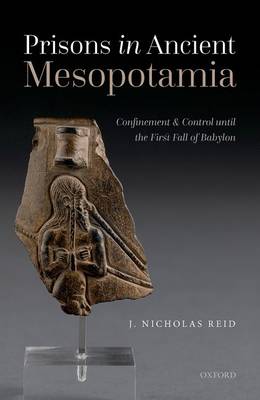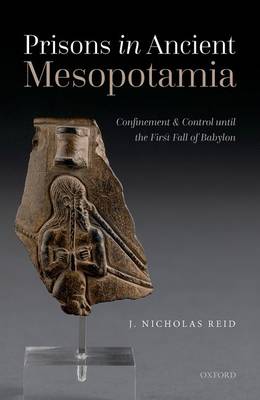
- Afhalen na 1 uur in een winkel met voorraad
- Gratis thuislevering in België vanaf € 30
- Ruim aanbod met 7 miljoen producten
- Afhalen na 1 uur in een winkel met voorraad
- Gratis thuislevering in België vanaf € 30
- Ruim aanbod met 7 miljoen producten
Zoeken
Prisons in Ancient Mesopotamia
Confinement and Control Until the First Fall of Babylon
J Nicholas Reid
Hardcover | Engels
€ 161,45
+ 322 punten
Omschrijving
Prisons in Ancient Mesopotamia explores the earliest historical evidence related to imprisonment in the history of the world. While many historical investigations into prisons have revolved around the important question of punishment, this work moves beyond that more narrow approach to consider the multifunctional practices of detaining the body in ancient Iraq. It is the contention of this book that imprisonment arose out of the desire to control and detain the body in relation to labor. The practice of detainment for coercion became adaptable to a variety of circumstances and goals, which shaped the contexts and practices of imprisonment. With time, religious ideology was attached to imprisonment. In one literary text, a prisoner was refined like silver and given new birth in the prison. The misery of imprisonment gave rise to lament through which a criminal could be ritually purified and restored to a right relationship with their personal god. Beyond this literary perspective, this work reconstructs how imprisonment and religious ideology intersected with the judicial process and explores the evidence related to the reasons behind imprisonment, the treatment of prisoners, and the evidence related to the lengths of their stays.
Specificaties
Betrokkenen
- Auteur(s):
- Uitgeverij:
Inhoud
- Aantal bladzijden:
- 216
- Taal:
- Engels
Eigenschappen
- Productcode (EAN):
- 9780192849618
- Verschijningsdatum:
- 31/10/2022
- Uitvoering:
- Hardcover
- Formaat:
- Genaaid
- Afmetingen:
- 144 mm x 216 mm
- Gewicht:
- 394 g

Alleen bij Standaard Boekhandel
+ 322 punten op je klantenkaart van Standaard Boekhandel
Beoordelingen
We publiceren alleen reviews die voldoen aan de voorwaarden voor reviews. Bekijk onze voorwaarden voor reviews.







